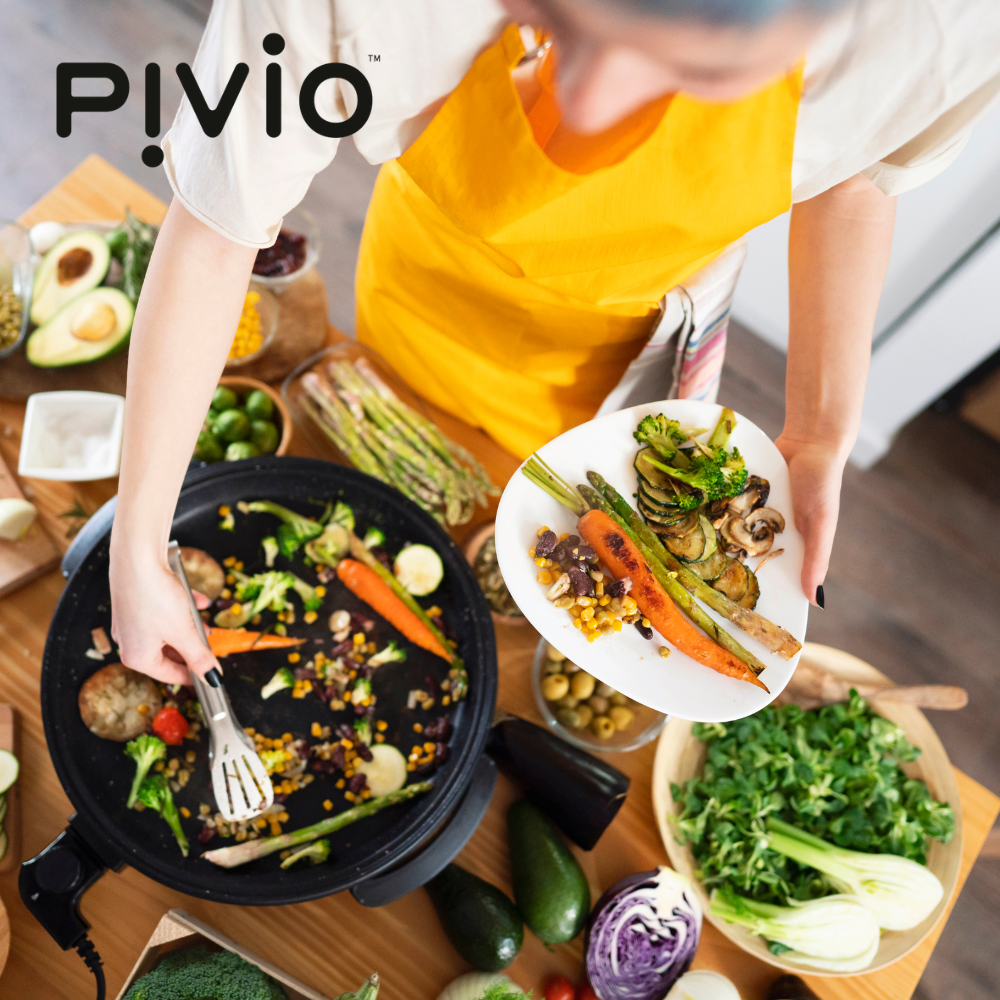
You’ve likely heard about many of the diet trends that are popular these days – Keto, WeightWatchers, Nutrisystem, South Beach, Paleo, Atkins – the list goes on. The reality is that with all of these diet programs available it is overwhelming to know where to start, and what programs really can be beneficial for health. This month is National Nutrition Month, and our Pivio experts will be highlighting some of the lesser-known facts about the diet culture while showcasing positive healthy lifestyle choices that can provide powerful transformation.
Risks in Diet Culture – Important Facts
Keto
Arguably one of the most popular diet trends currently is Keto. A diet plan emphasizing low carbohydrates and high fats, once in ketosis, the body shifts away from leveraging glucose as fuel and instead uses fatty acids and ketone bodies for energy. The risky reality, however, is that following a Keto-like diet can more than double the risk of cardiovascular issues such as chest pain (angina), blocked arteries requiring stents, heart attacks, and strokes. A new study was recently released on the topic, here.
Additionally, this type of eating plan could lead to increased levels of LDL, often known as the “bad” cholesterol, which can also increase the likelihood of cardiovascular disease. Research shows that for individuals who want to follow a Keto-like diet, it is critical to do so under the supervision of a physician who will diligently monitor cholesterol levels.
Dr. Sal Lacagnina, Pivio Medical Director, shares:
“Weight loss is a possible short-term effect of the Keto diet, but in the long-term eating these types of foods significantly increases one’s risk for cardiovascular disease, cancer, and other chronic illnesses. Therefore, is short-term weight loss worth the long-term risk?”
Paleo
Another popular diet right now is Paleo. Emphasizing eating as humans may have during the Paleolithic Era (2.5 million to 10,000 years ago), Paleo includes fruits, vegetables, lean meats, fish, eggs, nuts, and seeds. Foods to avoid then include grains, legumes, dairy products, refined and added sugar, added salt, white potatoes, and highly processed foods. According to Mayo Clinic, the main concern about the Paleo diet is the lack of whole grains and legumes. These foods are considered good sources of fiber, vitamins, proteins, and other nutrients. The potential risk of eating a Paleo diet is that all recommended nutrients may not be getting to the body. See more from Mayo Clinic here.
Charmin Aschenbrener, Pivio Registered Dietitian Health Coach, agrees saying:
“The Paleo diet recommendation of avoiding highly processed food is something I can definitely agree on, but with the omission of legumes, whole grains, and potatoes and being that the diet is high in animal protein and low in complex carbohydrates, make this an eating pattern I do not recommend. When studying the longest living cultures, we see that it is undeniable that beans, whole grains, and potatoes are the foundation of their diets.”
Optimal Nutrition – The Pivio Way
So, what is the optimal way to approach nutrition? Our experts wholeheartedly advocate for a whole food, plant-based diet rooted in the principles of lifestyle medicine. The reason for this is that following lifestyle medicine principles extends beyond only nutrition. The six pillars of lifestyle medicine are:
- Plant-rich eating pattern
- Sleep and rest
- Physical activity
- Meaningful social connections
- Avoidance of risky substances
- Stress Management
Looking at the nutrition pillar, a whole food, plant-based diet has been proven to prevent, halt, or reverse common chronic diseases. More than 40 peer-reviewed publications document the effectiveness of the lifestyle solution LMI offers in reducing and reversing risk factors related to:
- Diabetes
- Hypertension
- Obesity
- Heart Disease
- Other Chronic Diseases
Experts confirm that a plant-rich eating pattern focusing on fresh fruits and vegetables, whole grains, and legumes are key to restoring health. Pivio experts share:
Dr. Sal Lacagnina – “Plant-based foods that are whole and unprocessed have been shown by numerous studies to result in less inflammation in the body and brain, less risk for all of the common chronic illnesses, and even less risk for cancer. The healthy chemicals in plant-based foods even have a positive effect on the DNA and have been shown to help people live longer!”
Charmin Aschenbrener – “Applying all of the pillars of lifestyle medicine, and specifically following a whole food, plant-based dietary pattern is the quickest way to achieve optimal health and disease reversal. Using food as medicine with a whole food, plant-based lifestyle is packed with fiber rich, nutrient dense, anti-inflammatory, disease fighting foods.”
Pivio experts and participants continue to prove why Pivio is the preferred methodology for living the healthiest life possible. Learn more about the participant journey and then connect with us on LinkedIn to join our welcoming community.
